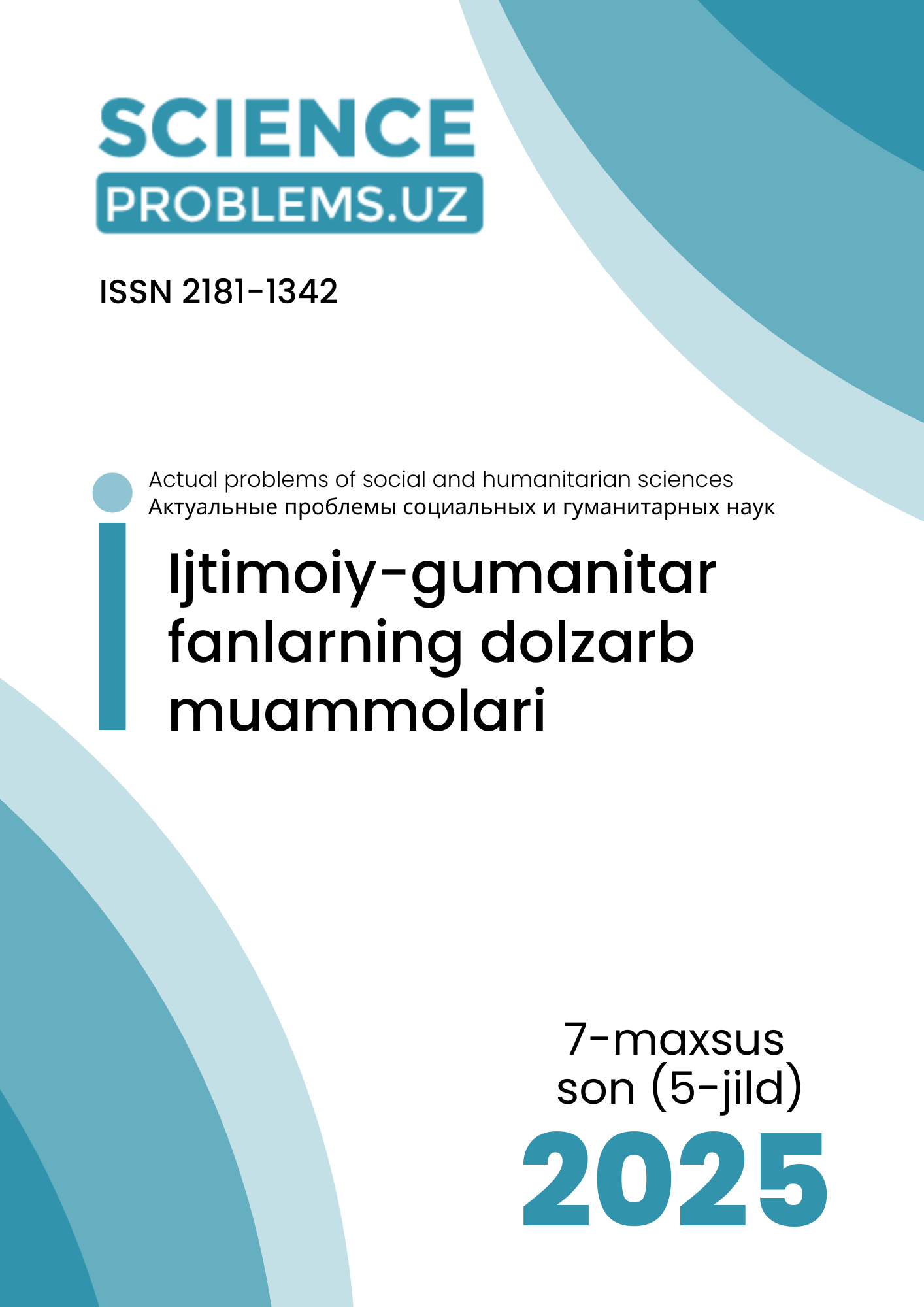ПЕДАГОГИЧЕСКАЯ ГОТОВНОСТЬ К ЭПОХЕ ИСКУССТВЕННОГО ИНТЕЛЛЕКТА: АНАЛИЗ КОМПЕТЕНЦИЙ УЧИТЕЛЕЙ ИНФОРМАТИКИ И ПЕРСПЕКТИВЫ ИХ РАЗВИТИЯ В УЗБЕКИСТАНЕ
DOI:
https://doi.org/10.47390/SPR1342V5SI7Y2025N39Ключевые слова:
искусственный интеллект, учитель информатики, цифровые компетенции, педагогическая компетентность, оценка компетентности, методы обучения, профессиональное развитие.Аннотация
Настоящий доклад посвящен критической задаче оценки компетентности учителей информатики в области искусственного интеллекта (ИИ). В условиях быстрого внедрения ИИ в образовательный процесс по всему миру, включая Узбекистан, возрастает потребность в квалифицированных педагогах, способных эффективно интегрировать эти технологии. В докладе анализируются ведущие международные рамки компетенций в области ИИ для учителей, подробно рассматриваются существующие методологии оценки, выявляются основные вызовы и факторы, влияющие на развитие компетентности учителей. Особое внимание уделяется национальной стратегии Узбекистана в области ИИ и текущим инициативам по подготовке учителей. В заключении представлены рекомендации по совершенствованию оценки и развитию компетентности учителей информатики в Узбекистане, что позволит стране достичь своих амбициозных целей в области цифровой трансформации и подготовки будущих поколений к жизни в мире, управляемом ИИ.
Библиографические ссылки
1. UNESCO. (2021). AI Competency Framework for Teachers. CEDEFOP. https://www.cedefop.europa.eu/en/tools/vet-toolkit-tackling-early-leaving/resources/unesco-ai-competency-framework-teachers
2. OECD. (2023). AI Literacy Framework for Primary & Secondary Education. https://learnworkecosystemlibrary.com/initiatives/ai-literacy-framework-for-primary-secondary-education-oecd-ec/
3. Touretzky, D. S., Gardner-McCune, C., Martin, F., & Seehorn, D. (2019). AI for K–12: Five Big Ideas in AI. https://ai4k12.org/
4. Holmes, W., Bialik, M., & Fadel, C. (2019). Artificial Intelligence in Education: Promises and Implications for Teaching and Learning. Boston: Center for Curriculum Redesign.
5. van Laar, E., van Deursen, A. J., van Dijk, J. A., & de Haan, J. (2020). Determinants of 21st-century digital skills and 21st-century digital skills in the workplace: A systematic literature review. Computers in Human Behavior, 107, 106273. https://doi.org/10.1016/j.chb.2020.106273
6. Beeline Uzbekistan. (2024). Beeline Academy launches free AI courses for 1,000 computer science teachers. https://beeline.uz/en/events/news/beeline-academy-otkryvaet-nabor-na-besplatnye-kursy-ii-dlya-1000-prepodavateley-informatiki
7. UNICEF. (2025). Educational Technology Use in Uzbek Schools: Eduten Pilot Report. https://www.unicef.org/innovation/media/24166/file
8. Center for Strategic Development. (2025). Artificial Intelligence: A Tool for Improving the Quality of Education. https://strategy.uz/index.php?lang=en&news=2096
9. AI | University of Florida. (2025). K–12 AI Education Program. https://ai.ufl.edu/teaching-with-ai/k-12-ai-education-program/
10. Son, J. B. (2023). AI Literacy Questionnaire – Language Teachers. https://drjbson.com/projects/ail/ailq/AILQ-LT.pdf
11. Wang, Q., & Woo, H. L. (2021). Teachers’ Use of Artificial Intelligence in Education: A Systematic Review. Computers and Education: Artificial Intelligence, 2, 100009. https://doi.org/10.1016/j.caeai.2021.100009
12. Cavanagh, S. (2023). AI Literacy is Imperative for Classroom Success. Teachers College, Columbia University. https://www.tc.columbia.edu/articles/2025/july/ai-literacy-is-imperative-for-classroom-success/








